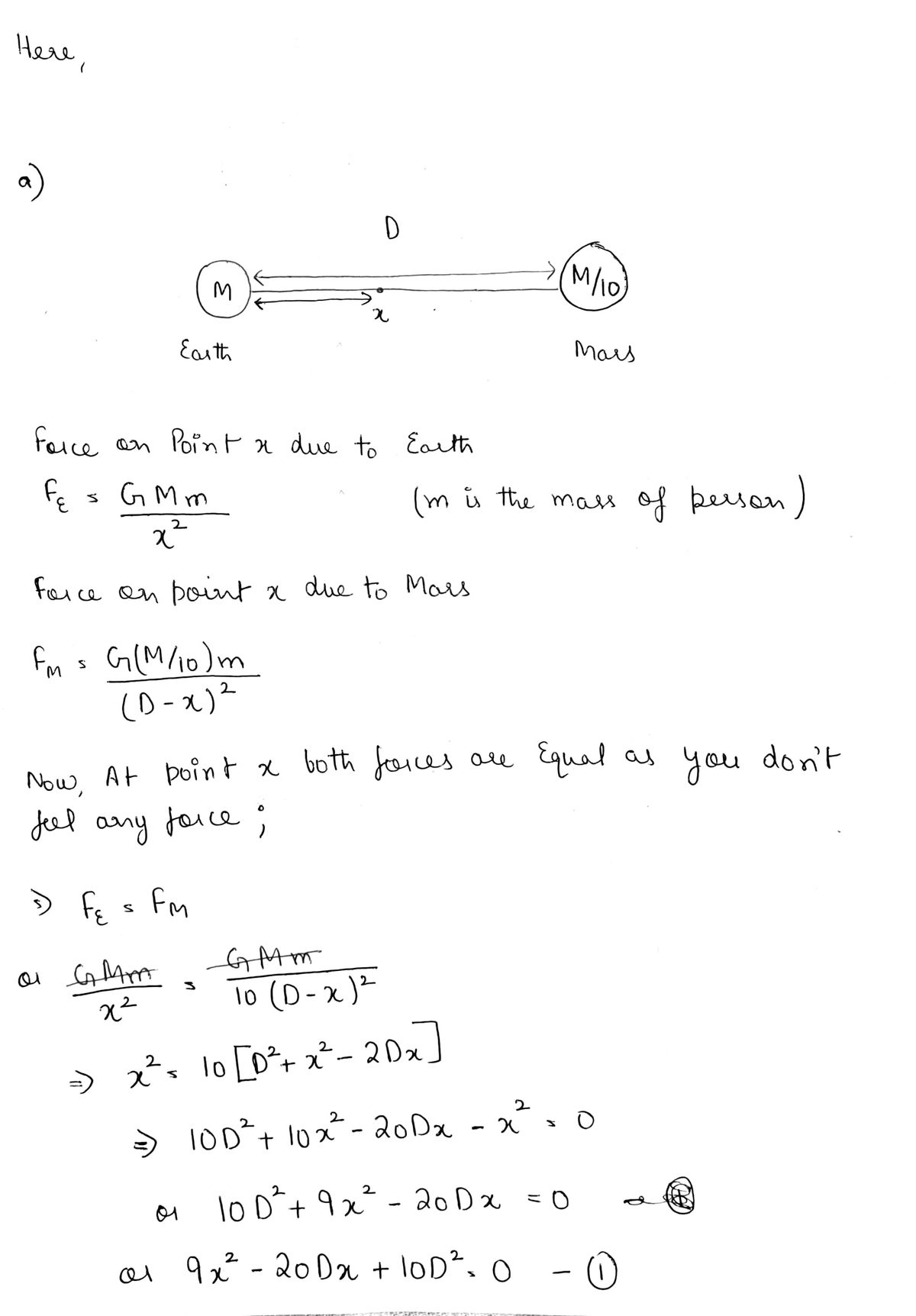Problem 3 Gravity Mars has a tenth of the mass of Earth. (a) Assume you were only affected gravitationally by the Earth and Mars. How far away from Earth (in the direction of Mars) should you go if you don't want to be attracted to either planet? Let D be the distance between the Earth and Mars. (b) Your weight on Mars is that of what it would be on Earth. What must the radius of Mars be? (Take the radius of the Earth to be Ro).
Gravitational force
In nature, every object is attracted by every other object. This phenomenon is called gravity. The force associated with gravity is called gravitational force. The gravitational force is the weakest force that exists in nature. The gravitational force is always attractive.
Acceleration Due to Gravity
In fundamental physics, gravity or gravitational force is the universal attractive force acting between all the matters that exist or exhibit. It is the weakest known force. Therefore no internal changes in an object occurs due to this force. On the other hand, it has control over the trajectories of bodies in the solar system and in the universe due to its vast scope and universal action. The free fall of objects on Earth and the motions of celestial bodies, according to Newton, are both determined by the same force. It was Newton who put forward that the moon is held by a strong attractive force exerted by the Earth which makes it revolve in a straight line. He was sure that this force is similar to the downward force which Earth exerts on all the objects on it.


Step by step
Solved in 3 steps with 3 images









